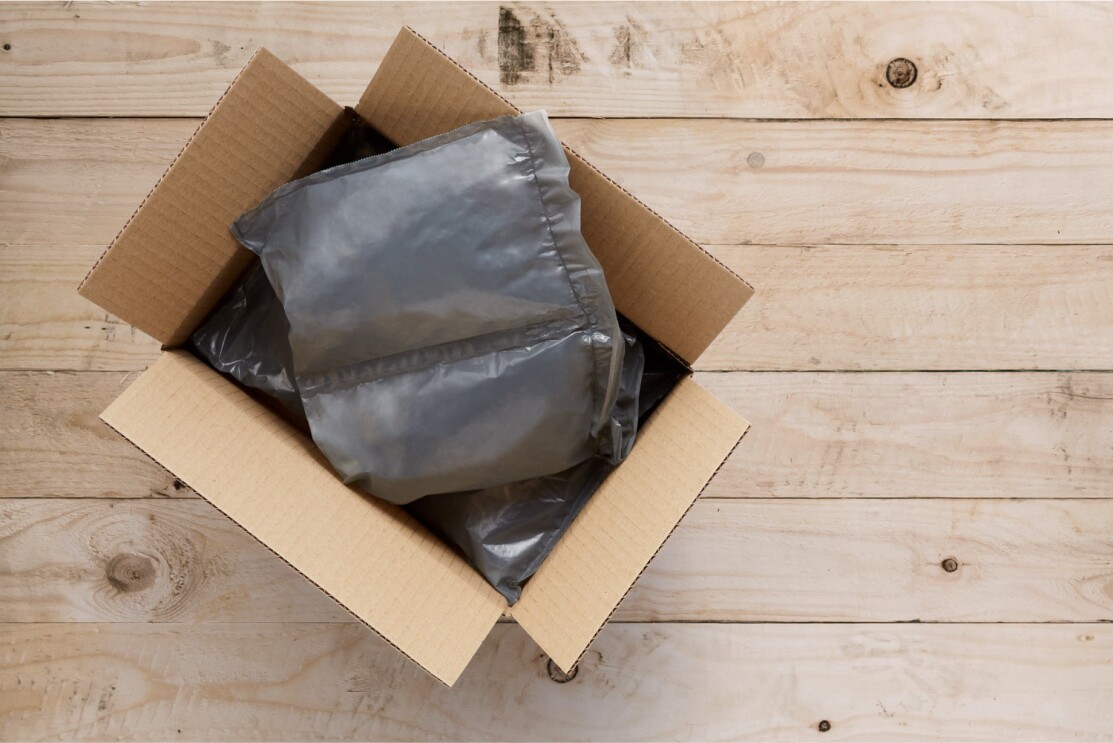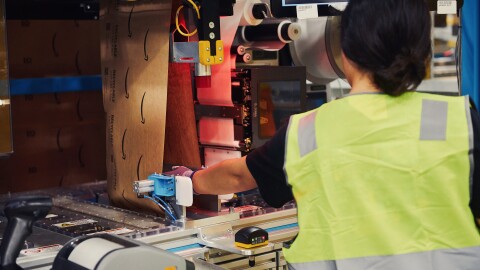Customers shopping with Amazon across Europe – and whose orders are shipped from Amazon’s European fulfillment centers – will no longer receive items packed with plastic air pillows. This includes items sold directly by Amazon, and by third-party selling partners who ship their products using Fulfillment by Amazon (FBA). Instead of plastic air pillows, items will be packed with 100% recycled and 100% recyclable packing paper, known as dunnage, which is designed to prevent movement within boxes and keep items safe.
This is the latest step by Amazon to reduce single-use plastic packaging, following the move from single-use plastic delivery bags for Amazon-fulfilled deliveries to paper bags and cardboard envelopes across Europe.
“Packaging that is easy to recycle is important to customers and important to us,” said Olivier Pellegrini, Director of Customer Delivery Excellence, Amazon. “Ending the use of plastic air pillows is just another step towards packaging that can easily be added to our customers’ household recycling.”
Since 2015, Amazon has reduced the weight of outbound packaging per shipment by more than 38% and eliminated more than 1.5 million tons of packaging material.

From cardboard boxes to flexible bags, Amazon is working to improve the sustainability of its packaging. The company matches packaging size to products to use less material overall, and increases the amount of recycled content that goes into making them.
Amazon’s packaging programs encourage vendors to package their products in easy-to-open packaging that is 100% recyclable and ready to ship to customers without additional Amazon packaging. The company tests packaging in a dedicated, state-of-the-art lab and in fulfillment centers across the globe to identify specific steps that vendors can take to improve their packaging, and ensure products are protected all the way to the customer’s doorstep. The company is also encouraging third-party sellers who do not use Amazon's fulfillment network - and therefore are responsible for their own packaging choices - to use more sustainable packaging.
While Amazon works hard to reduce single-use plastic packaging material, customers in Europe may still receive products in plastic packaging under the following circumstances:
- When a product comes in a single-use plastic bag from the manufacturer and the bag is suitable, Amazon will deliver the product to the customer in the manufacturer-supplied bag. This avoids the addition of unnecessary extra packaging.
- If this bag contains contents that could spill, Amazon may decide to add an outer plastic layer of packaging.
- Other types of plastic padding material such as bubble wrap may still be used where necessary, for example to protect fragile items like glass.
- In specific weather conditions, Amazon may require to add an additional single-use plastic bag to the paper and cardboard packaging to protect orders that are left on the door steps of our customers from rain.
- While Amazon controls the packaging for items shipped to customers direct from its own Fulfilment Centres, more than 50% of sales comes from third party selling partners, many of which are small and medium-sized businesses who sell to Amazon customers via the Amazon store. In some cases, the selling partners ship directly to customers themselves. In those cases Amazon does not control the packaging. We encourage sellers to use more sustainable packaging options.
A study by Oliver Wyman and Logistic Advisory Experts (LAE), a spin-off of the Institute of Supply Chain Management at the University of St Gallen, found that e-commerce results in between 1.5 and 2.9 times lower greenhouse gas emissions than stationary retail – including the returns process. At the same time, e-commerce saves four to nine times the traffic it generates with customers’ deliveries only representing 0.5 percent of total traffic in urban areas.
Amazon is the co-founder of and the first signatory to The Climate Pledge, a commitment to reach net-zero carbon by 2040. As part of its commitment, Amazon is on a path to reaching 100% renewable energy across its operations by 2025 and has ordered more than 100,000 electric delivery vehicles, with thousands already making deliveries to customers in Europe.












